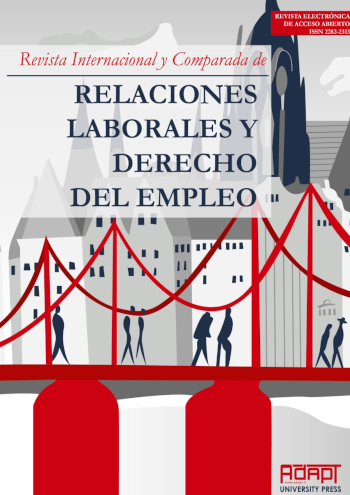Abstract
Chile se ha posicionado paulatinamente como un país de acogida de una población migrante crecientemente heterogénea, que ha aumentado su representación de forma constante y que predominantemente está compuesta por migrantes laborales. El perfil laboral de estos flujos impone desafíos particulares al urgente cambio legislativo necesario en materia de política migratoria, lo cual incluye el aseguramiento de los derechos de los trabajadores migrantes, especialmente en relación a sus derechos laborales y de seguridad social. En el presente artículo se resume y analizan las acciones llevadas a cabo para el necesario cambio de paradigma en la legislación y política migratoria actual, las cuales se traducen en la elaboración de un Anteproyecto de Ley de Migraciones del Ministerio del Interior y Seguridad Pública y las modificaciones administrativas que permiten el acceso a derechos sociales, civiles y culturales a los migrantes, en espera de la nueva legislación. Se plantea que todas estas han constituido un aporte al aseguramiento de la titularidad de derechos de las personas migrantes, especialmente en materia laboral y de seguridad social.
The migration rate in Chile has especially increased over the last two decades. This trend is consistent with the positive migration inflows presented since 1990, when the country recovered its democracy. Along with this change, the recent migration inflows have proven to be more heterogeneous in term of the nationalities of people arriving to the country, consisting mainly of labour migrants. The positive and raising migration rates, its new composition and the high proportion of migrant aged 15 or more coming to settle in Chile, raise concerns regarding the actual legislation capacity for granting rights to the incomers, especially regarding labour and social security rights. Moreover, the Chilean legislation has proven to be antiquate, lacking a right-based approach, and does not provide the ad hoc institutional layout. Therefore, the urgency of a policy change is indisputable. In order to address this needed change a series of actions have been taken since 2008. These actions include a new legislative proposal and changes to the actual policy that allows migration inflow to be managed and assure migrant rights, while the new migration law is passed through Congress. The present article summarizes the work done in this regard, establishing that all these actions have meant an improvement in granting migrant rights, especially those concerned with labour and social security right.

